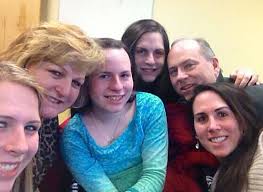Justina Pelletier turned 16 over Memorial Day
weekend. She was only 14 when the
Massachusetts Department of Children and Families (MA DCF) took custody of
her. She has been hospitalized or
institutionalized ever since. Many of
you will be aware that this is a story I have been following closely. If you
are new to this tale and need further background on this family please see When
Being Wrong is Unacceptable and When
Doctors Disagree.
Earlier this month Justina Pelletier was transferred to a
facility in Connecticut. Though her
parents still feel she should be home, they have said that this new facility
seems to be taking better care of their daughter. They are allowed more frequent visitation
with her and are hopeful that she will soon be home. Some friends were even allowed to visit and
celebrate with her on her birthday.

Even though these are positive developments, the case as
a whole is still very concerning.
In March of this year "permanent" custody of
Justina Pelletier was awarded to the state of Massachusetts. Prior to this, Justina’s care was ordered
back to her original physicians at Tufts.
Since this case is a diagnostic dispute between the physicians at Boston
Children's Hospital (BCH) and Tufts, wouldn’t this transfer signify that the
Tufts diagnosis of Mitochondrial Disorder was being upheld? And, since the parents had been upheld on
which doctors should treat their daughter, why did custody go to the
state? The logic in these decisions is
not clear to me.
Shortly after the custody
ruling in March the judge's decision was leaked, trying to gain some additional
perspective on the case I of course read it.
The full text can be found here. My interpretation is as follows:
He made three main points:
1. Disappointment
that Connecticut Department of Children and Families (CT DCF) was unwilling to
accept a transfer.
2. Justina’s
diagnosis
3. Parental
bad behavior
Let’s break down what Judge Johnston had to say about
each of these issues.
First, the better part of his decision talked about his
disappointment in CT DCF for refusing to accept a transfer of Justina. He noted in his decision that CT DCF had
investigated the Pelletiers and found that the home was an unsuitable
environment for Justina (the Pelletier family claims the opposite). Personally, I found the incessant mention of the
CT DCF denial by Johnston to be (for lack of a better word) whiny to the point
of ridiculousness and redundancy. To be
frank, I expect legal documents to be more professional and less petulant.
However, all that being said, I don’t understand why
Connecticut is refusing the transfer. I
assume it is to avoid media attention and responsibility. If they were to accept her, she would be
closer to home and if (as the Pelletier family states) CT DCF in fact found no
problem with the home, why not accept the transfer and release her to the
custody of her parents?
Regarding the diagnosis, Judge Johnston states that there
is a large amount of psychological and medical evidence to prove that Justina
suffers from Somatoform disorder. However,
as mentioned above, his order to transfer her care back to her original
physicians at Tufts is contradictory to this statement. The Tufts physicians diagnosed Justina with
Mitochondrial Disorder and will certainly treat her in accordance with their
diagnosis.
The last belabored point in the decision, was a
discussion of the parents’ poor behavior.
Interestingly, everything noted as poor behavior and the reasoning for
removal of custody happened after Justina was initially placed in state
custody. The document states that the
Pelletiers were:
- Verbally
abusive to BCH staff
-
Approaching other families at BCH and telling them that the hospital was
kidnapping children
-
Threatening institutions that were planning to accept Justina as a
patient
-
Contacting the media
- Changing
their minds about accepting a transfer to CT DCF upon the advice of new legal
counsel.
To me, much of this seems like behavior that is par for
the course when someone has been unnecessarily stripped of their parental
rights and are grasping at straws to have their child returned. I don’t deny that the behavior is rude, but
being rude is not a reason to lose your parental rights.
Consider these parents: their daughter has been taken by
the state of Massachusetts, they are extraordinarily limited in when they visit
her and what can be discussed, they see her health declining and can do
absolutely nothing to help her. How calm
and pleasant would you be if it were your child?
